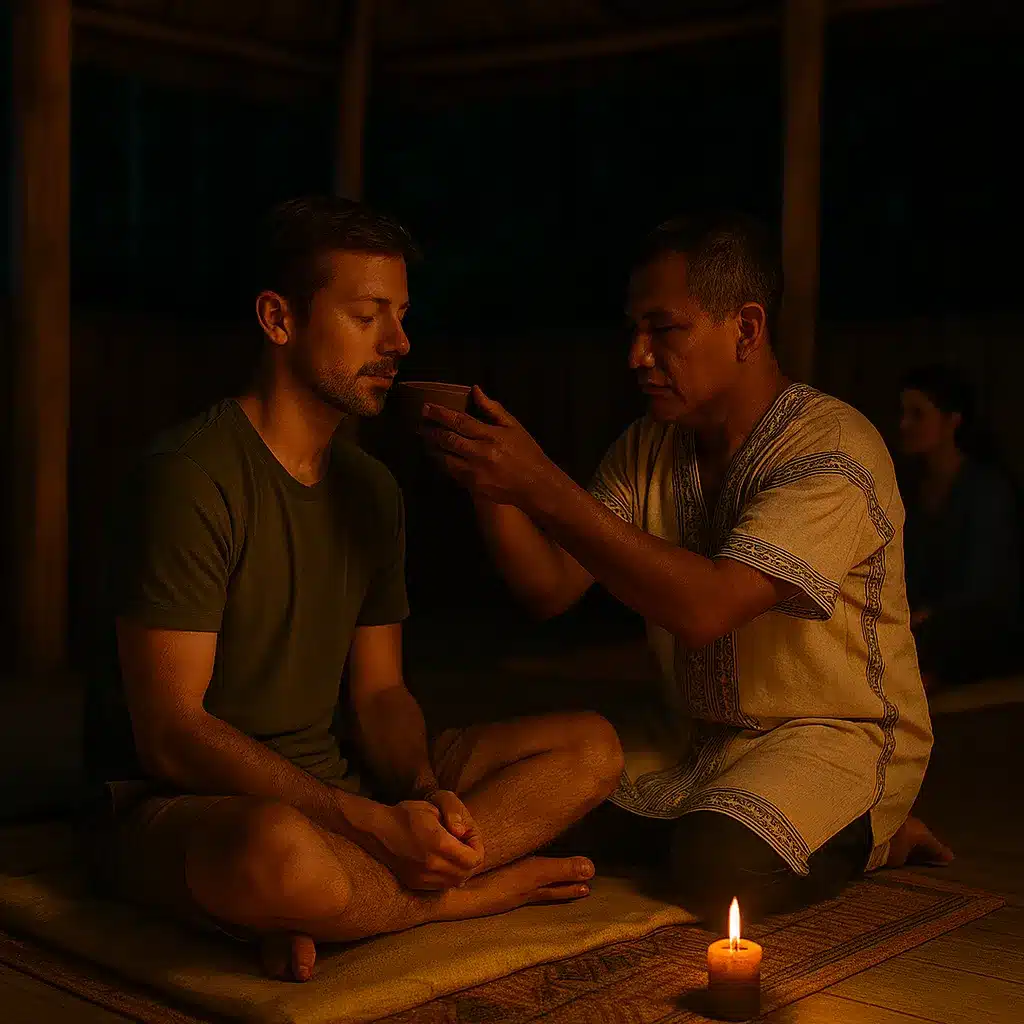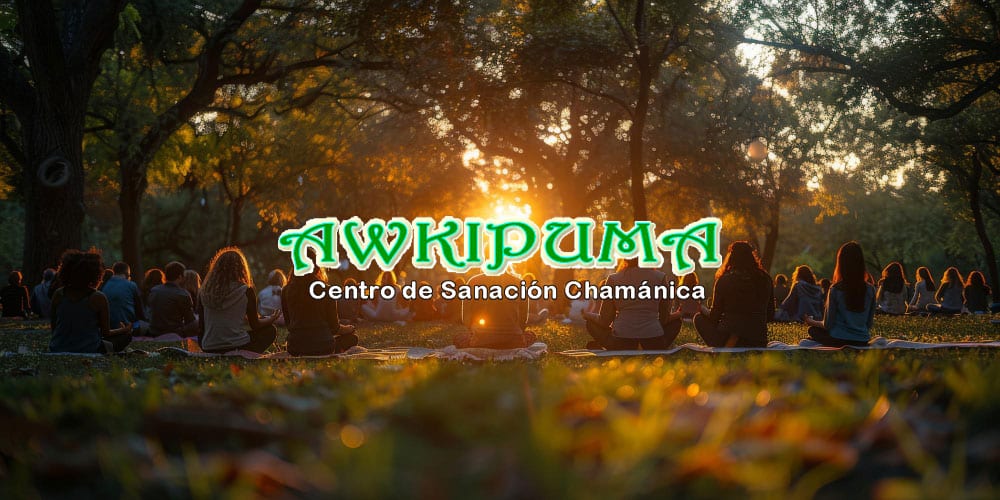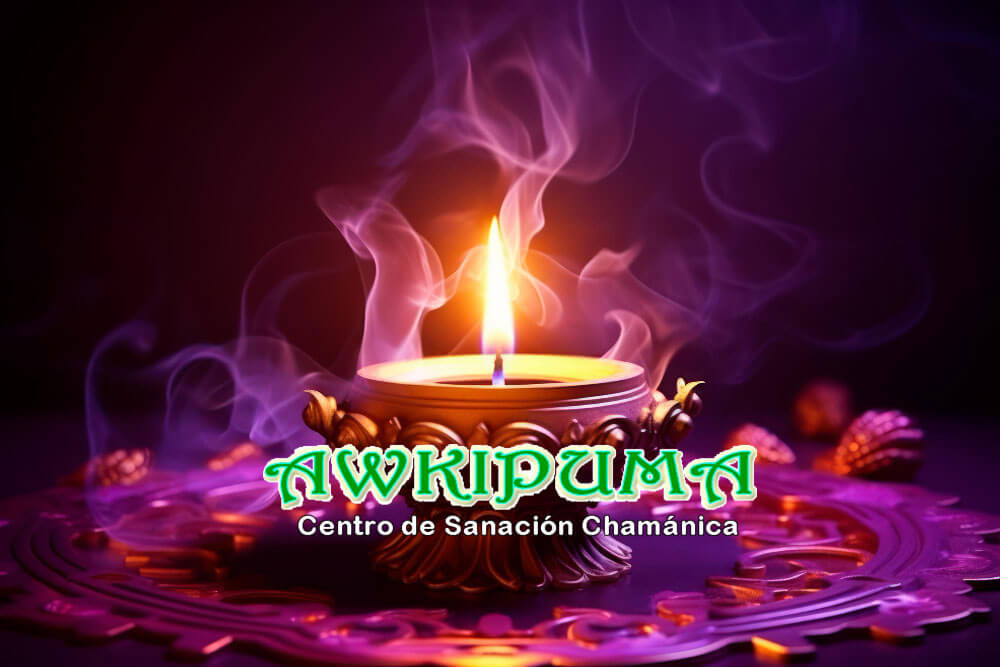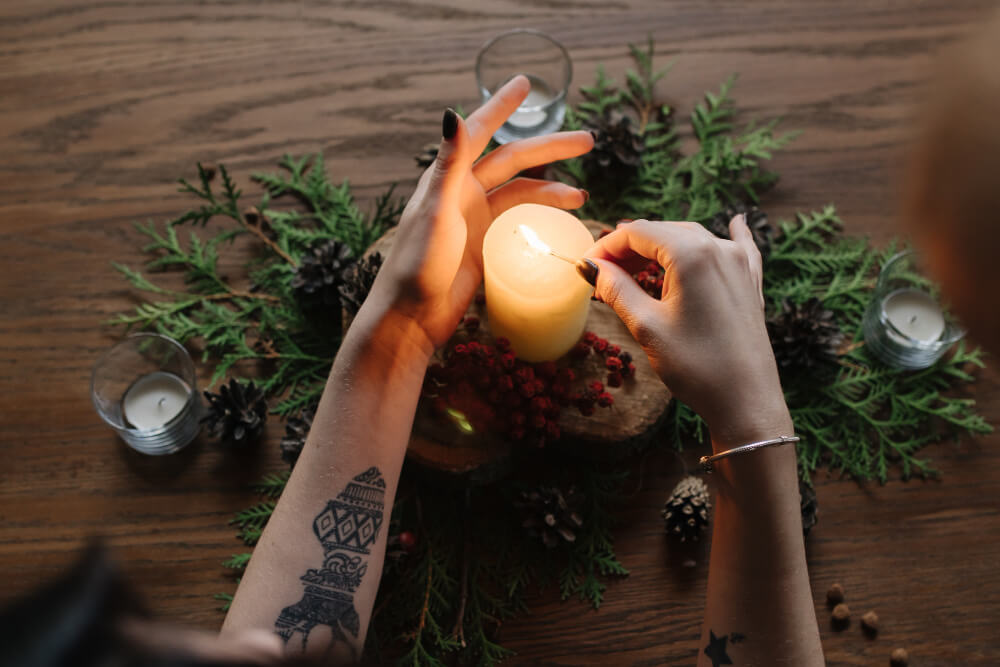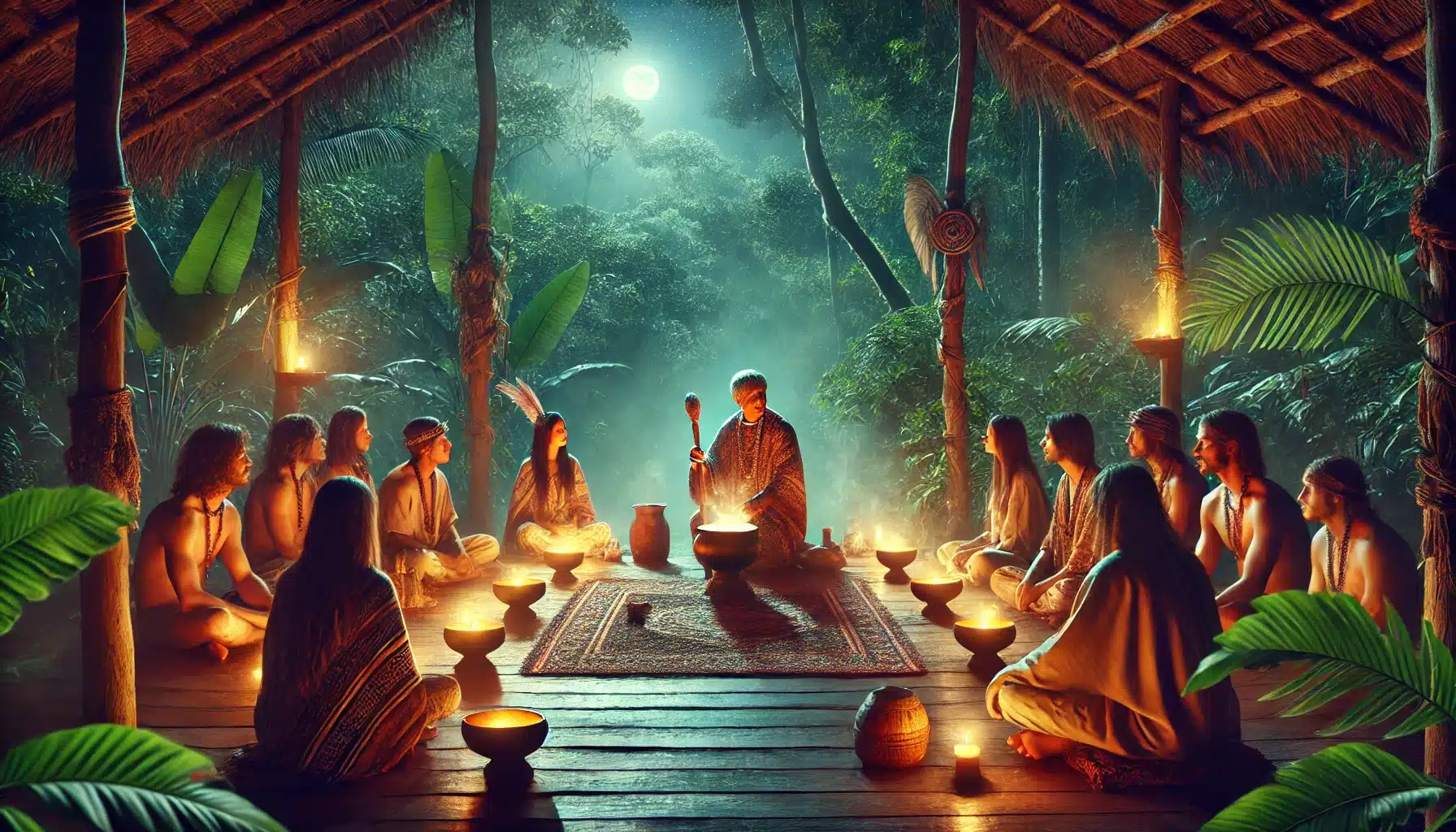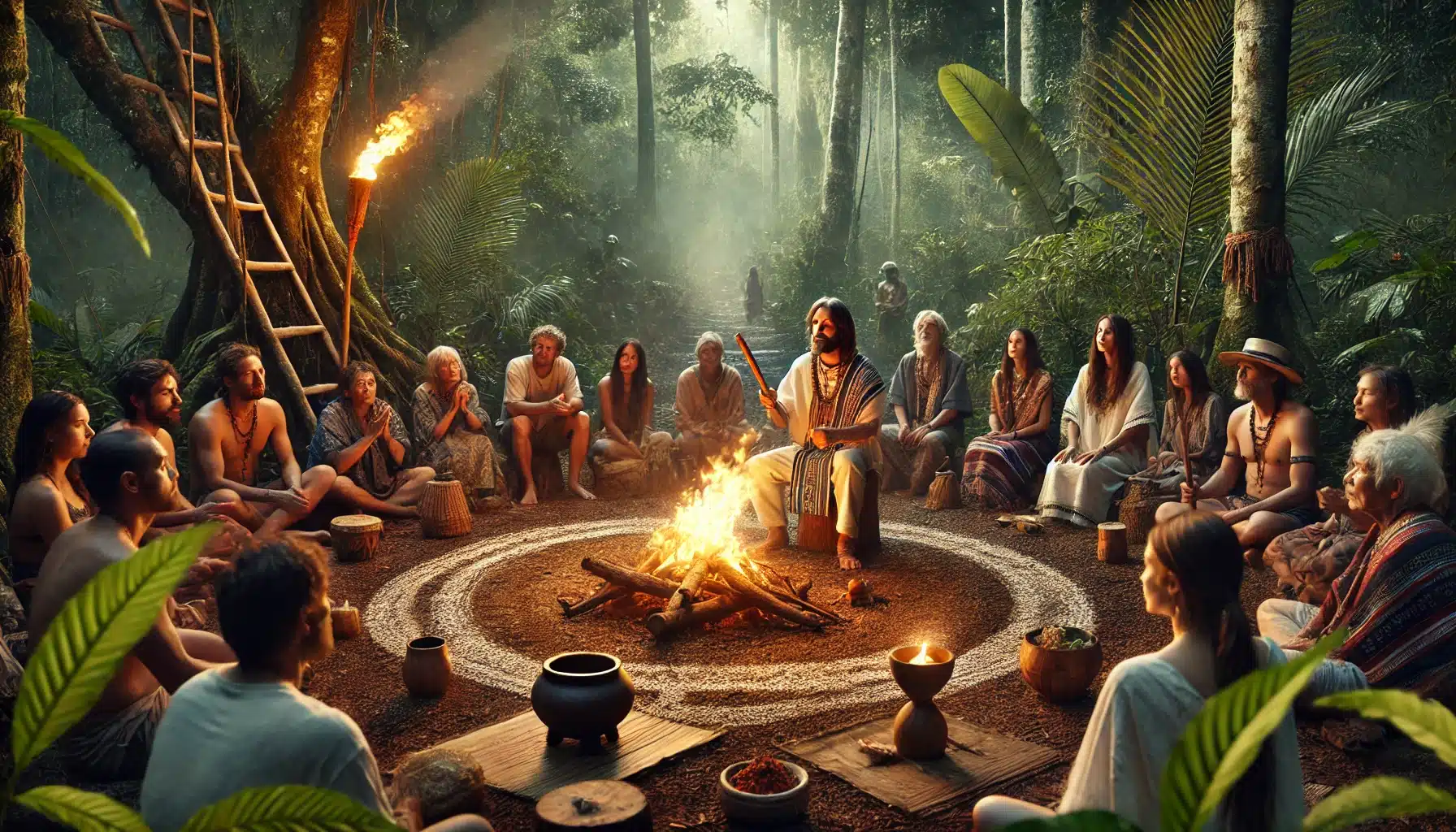Ayahuasca, a sacred brew traditionally used by indigenous communities in the Amazon, has gained global attention over the past decades for its profound spiritual and therapeutic effects. With its rise in popularity, the ritualistic use of ayahuasca has transformed from a closely guarded indigenous practice to a worldwide phenomenon attracting seekers from all walks of life. However, as this sacred tradition expands beyond its roots, it faces challenges that threaten its authenticity, cultural integrity, and sustainability. Understanding these dynamics is essential for ensuring that the future of ayahuasca remains a source of healing and spiritual connection while respecting its origins.
Global Recognition: Ayahuasca in the Modern World
Ayahuasca’s rise to global prominence has been fueled by a growing interest in plant medicine, alternative therapies, and spiritual exploration. Studies conducted by leading scientific institutions have highlighted its potential to treat mental health issues such as depression, anxiety, PTSD, and addiction. Documentaries, books, and personal testimonies have further amplified its reputation, drawing thousands of visitors annually to the Amazon seeking transformation and healing.
In Western contexts, ayahuasca ceremonies have emerged in retreat centers and private groups, facilitated by shamans or trained practitioners. This globalization has created opportunities for greater awareness and understanding of Amazonian spirituality and ecology. However, it also risks commodifying ayahuasca, turning a sacred ritual into a commercialized service.
Challenges of Preserving Indigenous Traditions
The widespread interest in ayahuasca poses significant challenges to the indigenous communities who have safeguarded its use for centuries. Among the most pressing issues are:
- Cultural Appropriation: The expansion of ayahuasca ceremonies outside the Amazon has sometimes resulted in the dilution or misrepresentation of its traditional practices. Indigenous rituals are deeply rooted in spiritual beliefs, cultural knowledge, and respect for the interconnectedness of all life. Stripping these elements from the ceremonies risks reducing them to mere transactions.
- Overharvesting of Ayahuasca Plants: The increased demand for ayahuasca has led to concerns about the sustainability of Banisteriopsis caapi (ayahuasca vine) and Psychotria viridis (chacruna leaf), the two main plants used in the brew. Overharvesting without proper replanting efforts threatens to deplete these vital resources, endangering not only the tradition but also the Amazonian ecosystem.
- Exploitation of Indigenous Knowledge: Many indigenous shamans and healers have shared their wisdom with outsiders in good faith, only to see it commercialized without their consent or benefit. Fair compensation and recognition for their role as stewards of this sacred tradition are often lacking.
- Loss of Spiritual Authenticity: In some cases, ceremonies led by untrained or inauthentic facilitators prioritize profit over spiritual and emotional safety. This can result in negative experiences for participants and undermine the credibility of ayahuasca practices.
The Role of Responsible Tourism and Ethical Practices
To ensure that ayahuasca continues to serve as a tool for healing and spiritual growth, it is crucial to adopt ethical and sustainable practices. Participants, retreat centers, and facilitators all play a role in preserving the integrity of this tradition:
- Respect Indigenous Leadership: Authentic ayahuasca ceremonies should be guided by indigenous shamans or facilitators trained in traditional methods. This ensures that participants receive not only the medicine but also the spiritual guidance necessary for a meaningful experience.
- Support Sustainability: Retreat centers and participants can contribute to the sustainable cultivation of ayahuasca plants by supporting reforestation efforts and working with local communities to protect the Amazonian ecosystem.
- Cultural Education: Participants should be encouraged to learn about the cultural and spiritual significance of ayahuasca. Understanding the traditions, songs (icaros), and rituals that accompany the brew helps deepen appreciation and respect for the indigenous worldview.
- Fair Compensation for Indigenous Communities: Ensuring that indigenous shamans and their communities receive fair compensation for their work fosters equitable relationships and helps sustain their cultural heritage.
Embracing Ayahuasca’s Future with Awareness
As ayahuasca continues to gain global recognition, it offers a unique opportunity to bridge ancient wisdom with modern understanding. By honoring the roots of this sacred tradition and practicing with intention, participants and facilitators can ensure that the future of ayahuasca remains a profound source of healing and spiritual connection for generations to come.
Your Invitation to AWKIPUMA: A Sanctuary for Authentic Ayahuasca Healing
If you feel called to experience the transformative power of ayahuasca in its authentic form, we invite you to connect with AWKIPUMA, a trusted center for shamanic healing in Iquitos, Peru. AWKIPUMA honors the ancient traditions of Amazonian spirituality, providing a safe and sacred space for profound healing and spiritual exploration. Led by experienced shamans and committed to sustainability and cultural preservation, AWKIPUMA offers an opportunity to journey inward while supporting the community and the environment. Contact us today to begin your transformative experience.


